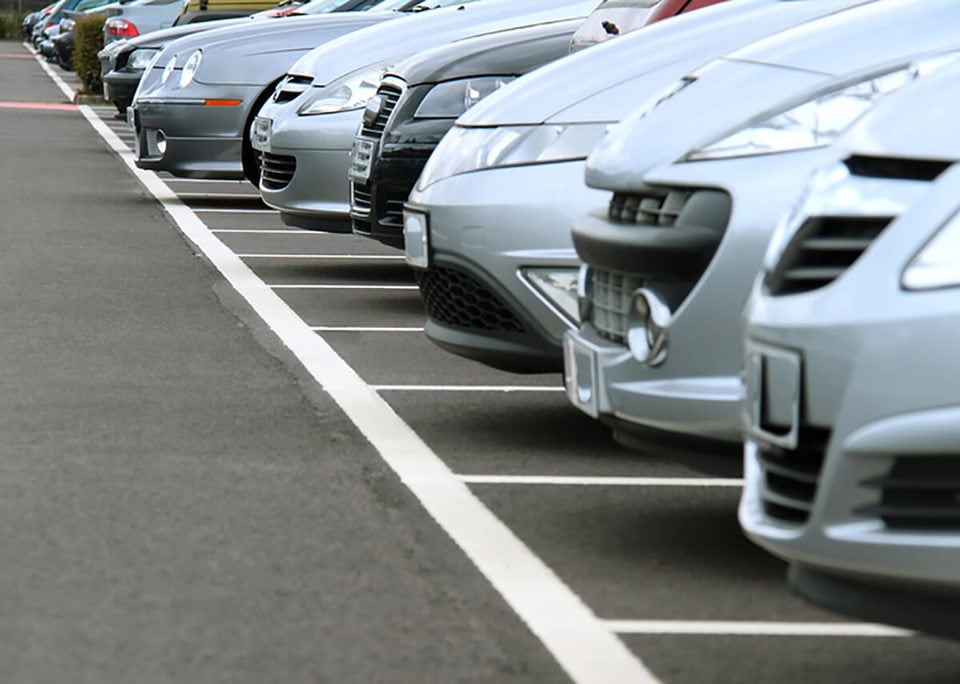Company cars and diesel should be taxed more heavily to cut CO2 emissions and traffic congestion, and improve air pollution.
A research study of 27 Organisation for Economic Cooperation and Development (OECD) countries, plus South Africa, argues that under-taxing company cars amounts to an average annual subsidy per car of around £1,260.The subsidy ranges from just £45 in Canada to £2,178 in Belgium.
In the UK, the OECD research suggests that company car drivers receive an average annual subsidy of around £880.
It estimates that the total cost of the subsidy across the 28 countries for 2012 was the equivalent of more than £21 billion in foregone tax revenues.
The OECD works with global Governments to understand key issues and suggest policy changes.
While Governments are not compelled to act on its recommendations, it is nevertheless a powerful lobbying voice in the corridors of power.
Simon Upton, environment director at the OECD, said: “The environmental and social costs of car use – air pollution and congestion for example – are not well reflected in the costs of driving.
“Those problems are made even worse when countries subsidise the purchase and use of company cars. These subsidies mean more cars are purchased and they are more heavily used than would otherwise be.
“Policymakers need to ask whether subsidising the commercial use of vehicles is a good use of resources, given the costs we already know car use imposes on society.”
The report claims that increased contributions to climate change, local air pollution, health ailments, congestion and road accidents cost OECD countries an estimated £91bn.
Employees enjoy two types of financial benefits from using a company car. A ‘capital’ benefit results from savings in the fixed costs of depreciation, financing, taxes, registration and insurance that the employee would otherwise have to pay.
A ‘distance’ benefit results from savings in the variable costs of fuel, repairs and maintenance. Ideally, the tax regime will include the value of both of these benefits as taxable income to the employee, said the OECD.
Many countries, including the UK, under-calculate the capital benefit to employees from a company car, and pay no attention to distance driven for personal use.
The few countries that measure the distance benefit for tax purposes apply a fixed per-kilometre rate regardless of fuel efficiency. Thus, they fail to capture the cost of additional fuel consumed by less fuel-efficient cars.
Experience shows the impact of under-taxing the distance bene?t. In the past, the marginal cost of driving a company car in the UK was not merely zero, but negative.
In other words, employees were not simply untaxed when using a company car: they actually enjoyed a ?nancial advantage from doing so.
First, employees would bene?t from a reduced tax liability, or scale charge, upon reaching certain thresholds in mileage. This gave drivers an incentive to reach that threshold.
Second, in exchange for unlimited free fuel from the employer, employees would incur an additional tax liability known as the fuel-scale charge. This liability, however, was ?xed, regardless of how much fuel was used.
Consequently, the policy encouraged high mileage since free fuel made sense only if enough was consumed to justify the fuel-scale charge.
Over the past two decades, the UK has reduced or eliminated these incentives in the tax system.
Between 1995-96 and 2009-10, for example, the number of car users in the UK electing to receive free fuel and pay the fuel-scale charge dropped from 48% to 28%.
This took place against a 16% reduction in company cars that were not receiving free fuel and thus remained unaffected by changes to the fuel-scale charge.
Still, changes to tax laws that removed the attractions of ‘free fuel’ have largely driven the reduction in both company car ownership and usage.
The OECD says that treating different forms of employment income in different ways creates imbalances that can both fuel inequity and lower tax revenue.
If income received in the form of a company car is taxed at a lower rate, it creates incentives for employees to receive income in this form rather than as wages, which may increase the ?scal cost to a country over time.
Inequities creep into the tax system when employees with similar total remuneration are taxed differently depending on the form of their income.
Moreover, those with higher incomes may be more likely to enjoy the tax perks of fringe bene?ts and therefore will disproportionately bene?t from the under-taxation of company cars.
In addition, this decreases the ef?ciency of the tax system and creates a competitive advantage for larger or more established ?rms that can offer fringe bene?ts like company cars, argues the OECD.
Full taxation of the bene?t received from company cars would level the playing ?eld with equivalent cash wages.
In other words, individuals should be required to include in their taxable income an amount equal to the cost of purchasing equivalent goods and services.
Such tax treatment would make employees indifferent to receiving compensation as in-kind or cash, suggests the OECD.
“The cost of driving a car today does not properly reflect the impact on the environment and to society,” said Upton. “Taxing diesel fuel and company cars correctly would help fix this.
“Governments should stop offering financial incentives to drive cars and to run them on fuels with a heavy environmental footprint.”
In the UK, air quality concerns have increased the focus on a CO2-based company car taxation regime, which doesn’t recognise harmful pollutants such as NOx.
However, transport minister Baroness Kramer told Fleet News that she believed CO2 would remain central to company car taxation, rather than NOx.
She said: “CO2 is something you have to tackle at a national/international level whereas with NOx, as the impact can often be so localised, I think the initiatives will be much more driven by local government.”
The average CO2 emissions of cars operated by the FN50 – the UK’s 50 largest contract hire and leasing companies – have fallen substantially in recent years, thanks to the current regime.
In 2008, average CO2 emissions stood at 157g/km, but six years later they have fallen by 22% to 122g/km.
Nevertheless, improvements in engine technology are persuading more fleets to switch from diesel to petrol.
Last year, diesel accounted for a record-high of 80% of vehicles operated by the UK’s 50 largest contract hire and leasing companies.
However, this year that has fallen to 75%, while petrol has risen by one percentage point to 21% of orders, according to the FN50.
Diesel fuel contains approximately 10% more energy per litre than petrol, with around 35.98 megajoules per litre of diesel compared to 32.6 megajoules per litre of petrol.
However, diesel engines are better at converting this energy into motion than their petrol counterparts, in part because diesel engines are more efficient in matching air to fuel and can operate efficiently on a wider range of air-to-fuel ratios.
Many believe that with the increased focus of European Union legislation on air quality, the rise of the petrol car is set to continue at the expense of diesel models.
However, the removal of the 3% benefit-in-kind tax differential between petrol and diesel cars in 2016/7 may affect any future change.
























Login to comment
Comments
No comments have been made yet.